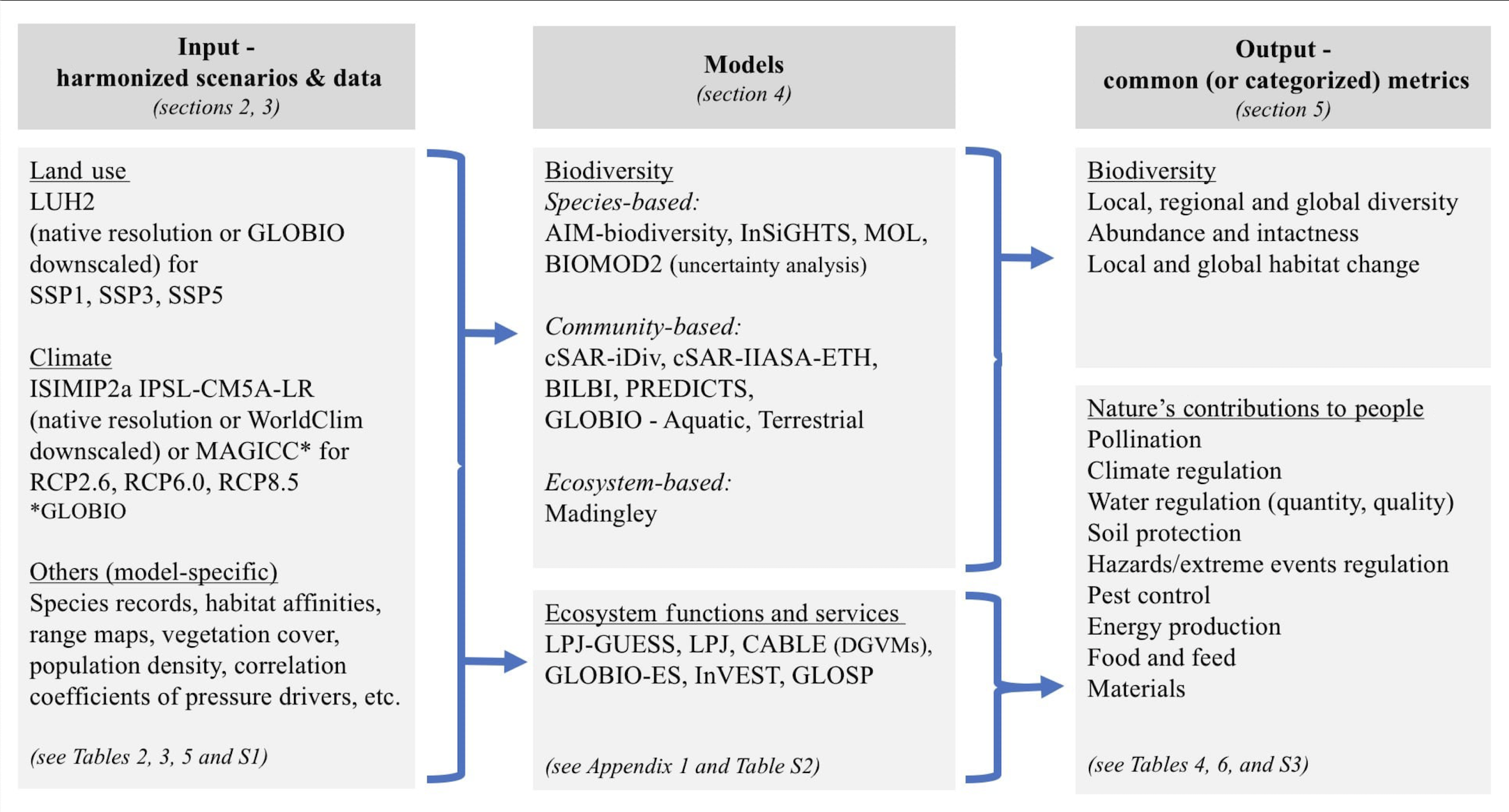In a paper entitled "A protocol for an intercomparison of biodiversity and ecosystem services models using harmonized land-use and climate scenarios" published in the journal Geoscientific Model Development, Drs. George Hurtt and Louise Chini co-author a study inter-comparing biodiversity and ecosystem services models using harmonized scenarios in order to project the impact of land-use and climate change on these models. Drs. Hurtt and Chini provided global land-use data for this study. Results will support the global assessment of IPBES, strengthen ties between IPBES and the IPCC processes, advise the CBD on developing strategic plans and conservation goals, and inform the development of a new generation of nature-centered scenarios.
The full abstract is provided below:
To support the assessments of the Intergovernmental Science-Policy Platform on Biodiversity and Ecosystem Services (IPBES), the IPBES Expert Group on Scenarios and Models is carrying out an intercomparison of biodiversity and ecosystem services models using harmonized scenarios (BES-SIM). The goals of BES-SIM are (1) to project the global impacts of land-use and climate change on biodiversity and ecosystem services (i.e., nature's contributions to people) over the coming decades, compared to the 20th century, using a set of common metrics at multiple scales, and (2) to identify model uncertainties and research gaps through the comparisons of projected biodiversity and ecosystem services across models. BES-SIM uses three scenarios combining specific Shared Socio-economic Pathways (SSPs) and Representative Concentration Pathways (RCPs) – SSP1xRCP2.6, SSP3xRCP6.0, SSP5xRCP8.6 – to explore a wide range of land-use change and climate change futures. This paper describes the rationale for scenario selection, the process of harmonizing input data for land use, based on the second phase of the Land Use Harmonization Project (LUH2), and climate, the biodiversity and ecosystem services models used, the core simulations carried out, the harmonization of the model output metrics, and the treatment of uncertainty. The results of this collaborative modeling project will support the ongoing global assessment of IPBES, strengthen ties between IPBES and the Intergovernmental Panel on Climate Change (IPCC) scenarios and modeling processes, advise the Convention on Biological Diversity (CBD) on its development of a post-2020 strategic plans and conservation goals, and inform the development of a new generation of nature-centred scenarios.


